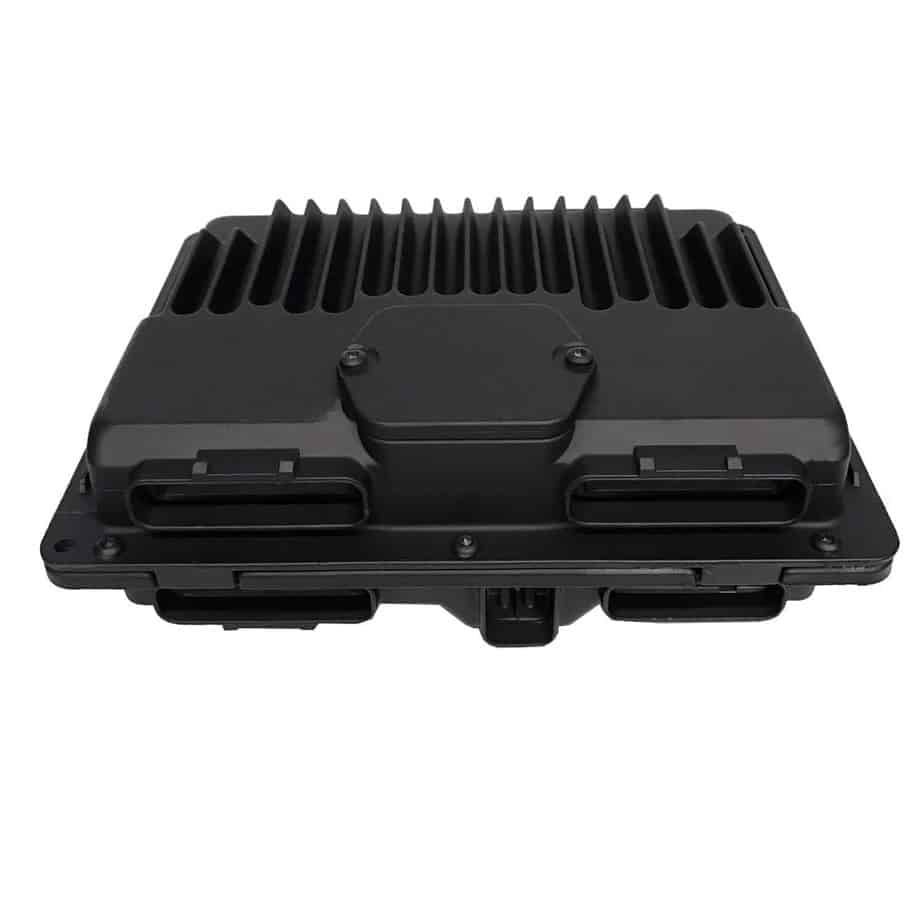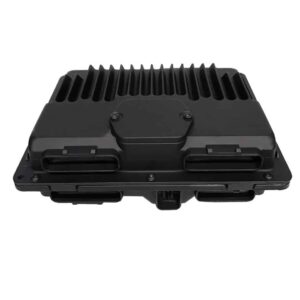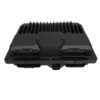Restore Your GM’s Brain and Get Back on the Road with Confidence
Is your work van or truck suddenly running rough, stalling, or refusing to start? As a mechanic with over two decades of experience, I’ve seen these symptoms countless times. Often, the culprit isn’t a bad sensor or a fuel issue, but the very heart of your vehicle’s electronics: the Powertrain Control Module (PCM). This isn’t just a part; it’s the central command center for your engine and transmission. When it fails, it can cause a cascade of frustrating and hard-to-diagnose problems. This replacement PCM is the reliable, straightforward solution to get your vehicle operating as it should, without the exorbitant costs and scheduling hassles of a dealership visit.
What sets this module apart is our commitment to a seamless repair. We don’t just ship you a box. We take your vehicle’s unique Vehicle Identification Number (VIN) and program this module with the latest, most stable software updates directly from GM. This means it arrives at your door ready for installation. This critical step ensures all components—from fuel injectors to transmission shift points—are perfectly synchronized, restoring lost power, improving fuel economy, and ensuring smooth operation. This is the definitive fix for a failing 1998 Savana 3500 PCM and a wide range of other GM vehicles.
From the Diagnostic Bay: The Ghost in the Machine
I once had a 1999 Chevy Suburban in the shop that was driving the owner crazy. It would randomly stall at red lights and throw intermittent codes for the crank sensor and throttle position sensor. The owner had already replaced both sensors twice. After checking the wiring and finding no faults, I hooked up my scope to the PCM outputs. The signals were noisy and erratic. The PCM itself was failing internally, sending out corrupted data that made other good parts seem faulty. We installed a VIN-programmed PCM, and the truck ran perfectly. It’s a classic case I’ve seen hundreds of times; a failing PCM can make you chase your tail replacing perfectly good parts. This is why starting with a reliable, correctly programmed module is key.
Is Your Vehicle Showing These Telltale Signs?
A failing PCM can manifest in many ways. If you’re experiencing any of the following, it’s a strong indicator that your module needs attention.
- ✔ Check Engine Light is on with codes like P0601, P0605, or other internal processor faults.
- ✔ The engine cranks but refuses to start.
- ✔ Harsh, erratic, or delayed transmission shifting.
- ✔ Unexplained drop in fuel mileage.
- ✔ The vehicle stalls intermittently, especially when warm.
- ✔ Communication errors with your scan tool (e.g., U0100).
- ✔ Misfires or rough idle even after a tune-up.
A Straightforward Guide to Installation
Installing your pre-programmed 1998 Savana 3500 PCM is a manageable job for a DIYer with basic tools. Following these steps ensures a smooth process.
- Safety First: Always disconnect the negative terminal from your vehicle’s battery and wait at least 10 minutes to allow the system to fully discharge.
- Locate the PCM: On most of these GM trucks and vans, the PCM is located in the engine compartment, typically on the driver’s side inner fender or near the battery.
- Disconnect the Connectors: Carefully unclip and remove the large wiring harness connectors from the old module. Inspect the pins for any corrosion or damage before proceeding.
- Remove the Old Module: Unbolt the old PCM from its mounting bracket. It’s usually held in by a few small bolts.
- Install the New Module: Mount your new, pre-programmed PCM onto the bracket and securely fasten the bolts.
- Reconnect Everything: Firmly plug the wiring harnesses back into the new module. You should hear or feel a click. Reconnect the negative battery terminal.
- Perform Security Relearn (If Needed): In some cases, a simple security relearn procedure is required. This typically involves turning the key to the ‘ON’ position for 10-15 minutes. Consult your vehicle’s service manual for the specific procedure.
Verified Fitment for These GM Models
This module is a direct replacement for part numbers 16250279, 09366810, and 09355699. Please verify your original part number or contact us with your VIN to confirm compatibility for your specific vehicle, including:
- Cadillac Escalade (1999)
- Chevrolet/GMC Pickups (1500/2500/3500) (1998-1999) – Gasoline Engines
- Chevrolet/GMC Vans (Express/Savana 1500/2500/3500) (1998) – Gasoline Engines
- Chevrolet/GMC Suburban (1500/2500) (1998-1999) – Gasoline Engines
- Chevrolet/GMC Tahoe/Yukon (1998-1999)
- Chevrolet S10 / GMC Sonoma (1998) – 4.3L V6
- Chevrolet Blazer / GMC Jimmy / Oldsmobile Bravada (1998)
- Chevrolet Astro / GMC Safari (1998-1999)
- GMC Envoy (1998)
- Isuzu Hombre (1998) – 4.3L V6
Don’t let a faulty computer keep your reliable GM vehicle off the road. This pre-programmed 1998 Savana 3500 PCM is the most effective way to solve complex electronic issues and restore your vehicle’s performance and dependability.
Do I need to do any programming myself?
Do I need to do any programming myself?
No. This module arrives at your door fully programmed to your vehicle’s VIN with the latest GM software updates. It is ready for installation right out of the box, saving you a trip to the dealership.
How do I provide my VIN?
After you complete your purchase, you will need to send us your 17-digit Vehicle Identification Number (VIN). We cannot ship the module until we receive this information, as it’s essential for correct programming.
Is this a guaranteed fix for my check engine light?
This PCM will resolve any issues and diagnostic trouble codes (DTCs) directly caused by a faulty module, such as internal processor errors (P0601). However, if your check engine light is caused by a separate faulty sensor or wiring issue, those parts will still need to be addressed.
Will this part fit other GM models?
Yes, this module is compatible with a wide range of GM trucks, vans, and SUVs from the late 1990s. Please check the detailed fitment list on this page and match your original part number (16250279, 09366810, or 09355699) to ensure compatibility.



